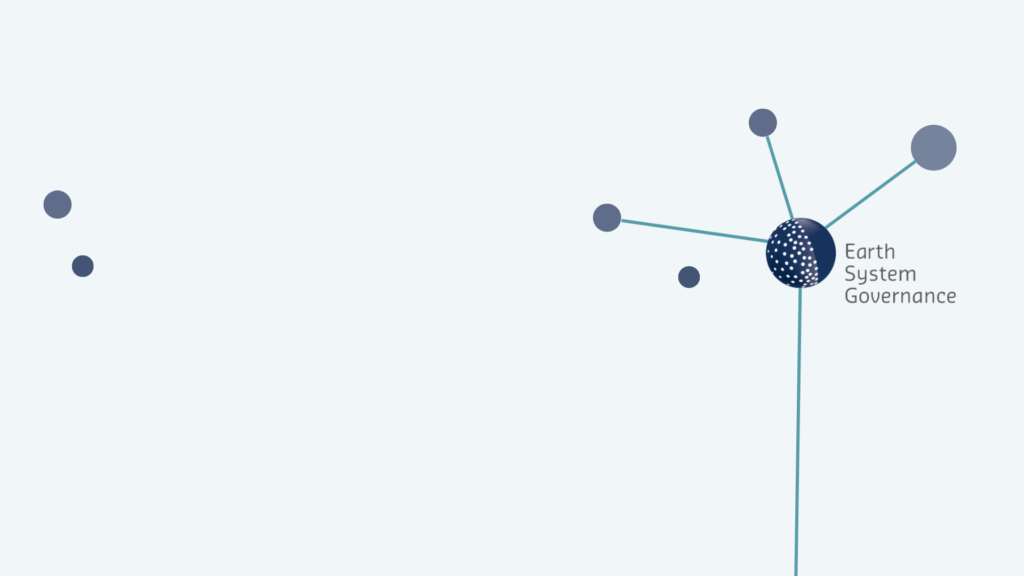Professional networks – particularly with people that are not already close to you – supply you with job opportunities, publication opportunities and grant application opportunities (not to mention some great friendships here and there). In this brief, we want to share networking and collaboration strategies that have worked well for us and that might work well for you too.
Read the brief below.
How to navigate networking and project collaboration
By Ina Möller & Jennifer Bansard
Preparing this brief, we found a fitting chinese proverb which says: “if you want 1 year of prosperity, grow grain. If you want 10 years of prosperity, grow trees. If you want 100 years of prosperity, grow people.”
Though few of us grow grain or trees, the value of growing a network for achieving a prosperous career is obvious. Professional networks – particularly with people that are not already close to you – supply you with job opportunities, publication opportunities and grant application opportunities (not to mention some great friendships here and there). In this brief, we want to share networking and collaboration strategies that have worked well for us and that might work well for you too. The brief also builds on discussions we had in the context of the early career seminar of the GLOBALGOALS2020 symposium.
Networking at conferences.
Conferences are excellent networking opportunities. Nowhere else will you find so many people with similar interests gathered in one place, and many come there fully expecting to be networking with others.
Be open to impromptu encounters. Networking opportunities simply arise through the very format of academic conferences. You will be standing in line to get your registration badge, again to get lunch, and again to get coffee. You will sit next to someone waiting for a panel presentation to start. You will sit next to someone at the conference dinner. These are all floating moments during which you can engage in small talk and get to know fellow conference participants.
Talk to the other members of your panel. In all likelihood, if you present a paper on a conference panel, you will have some topical overlap with the other panel members. This provides good starting grounds for engaging a conversation with the chair, the discussant, and the other panelists. You might find this easier than chatting up your lunch neighbor since you can look up your panel colleagues ahead of time and think about conversation starters.
Find your buddies. You possibly already know someone at the conference. If so, try meeting up with them and tag along a bit, have them introduce you to people they know. Over the course of the conference you’ll also probably notice some people that keep attending the same sessions as you. These are your people. You are obviously interested in the same topics, use it to start a conversation. (We, the editors of this series, met exactly like this in different constellations at conferences of the International Studies Association and the Earth System Governance project).
All of these forms of networking will make your conference experience nicer. You do not want to spend four days wandering conference halls by yourself. This is your community and you’ll surely meet plenty of friendly faces if you try.
You could also consider strategic networking. The kind where it’s not just about knowing nice people in your community, but getting to know people with more of a goal in mind. This could for example mean a person you’d wish to collaborate with on a research project, a person who could provide professional mentorship, who could provide feedback on your research endeavor, or who could offer you a job someday. For many, the prospect of strategic networking is daunting, and planning for it often causes stress and insecurity. To this we can only say: As with all things, practice makes perfect. Attending a few workshops and conferences at the beginning of your career is useful to get a hang of how things work, and will put you in contact with a few other people with which to start ‘growing’ your network. Here a few pointers that might help you navigate this adventure.
Contact the person you would like to speak to beforehand. Before a conference, use the program to identify people that you would like to engage with. Particularly at large conferences, it is sensible to contact people beforehand and ask for a short meeting. Make sure your pitch in the email is enticing – give them a reason why meeting you would be enjoyable or advantageous (common interests, project in development, etc.).
Pick with care. A bird in the hand is worth two in the bush. It is easier and often more satisfying to contact researchers who are less well known, but closer to your own topic. Early and mid-level career researchers are more likely to have common interests and goals than the top-notch professors who are overwhelmed by requests already. So when at a conference, choose sessions according to title, not according to name.
Ask a question at their presentation. Asking a question makes you stick out from the crowd and the presenter may be more willing to take time for you after the session. Chances are that if your question is interesting enough, the presenter (or someone else in the audience) may even approach you after the session to engage in a conversation.
Have something to offer. If you want to engage or collaborate with someone, it’s useful to offer an incentive that makes it worth their while. Offerings could include connections with your own network (mention that you are part of project X, come from university Y, or are supervised by professor Z), or convince them that your hard work will lead to a common publication, successful grant proposal, etc.
Do your thing, and do it well. If you do want to engage with the previously mentioned top-notch professors, then the best strategy is to do your thing as best you can. Imagine yourself as a young athlete, and the conference as a stadium. You never know whether there are talent scouts sitting in the audience until you’ve convinced them with true passion and high quality in research or discussion, at which point they will approach you.
Stay true to yourself. Show who you are, what makes you enthusiastic, and what you are passionate about. Stay authentic. Of course you can make an effort, but there is no use in pretending to be someone you’re not. Don’t try to please, especially if what you say goes against your own convictions or experiences. Academia is built on debate, and often a well-placed contradiction remains more memorable than any form of brown-nosing or boot-licking. If your counterpart doesn’t appreciate your sincerity, then perhaps you should reconsider whether this is indeed a desirable contact to have.
Follow up. Keep in touch with the people you met at the conference (at least with those that you liked and could imagine working with). Invite them to come to your university for a seminar, send them a proposal for a common project, or mention that you will be passing by their region and ask for a meeting. Following up is important if your contact is to become a part of your network.
Networking virtually
Conferences are of course not your only opportunity for networking. If you want to connect with people, you could also send them an email and explain why you would like to meet up for a skype/zoom meeting. This is ever more relevant in times of the coronavirus pandemic where conferences are being postponed or held virtually, without much opportunity for networking. Here are a few things to help you reach out this way.
Let yourself be introduced. If you can, have a more established colleague introduce you. This could be your supervisor or a colleague who may have already collaborated or worked with the person in question. (Such an introduction can also be useful for emails in preparation for IRL conferences or for introductions at the conference itself).
Empathize with your contact. Before writing your email, have a good think about what your contact might be interested in. Familiarize yourself with their recent work, find overlaps and common interests. Make concrete proposals of how a collaboration could look, and what outcome can be expected.
Find the right length. No-one likes reading essay-long emails. Make your message short and to the point, while maintaining the necessary respect required for a first-time approach. There are no rules on how to do this, but one could think of the email as an abstract of max. 200 words with spaces between the main messages to make reading easier.
Don’t forget social media. Social media, especially Twitter, is a great way to establish a presence in the scholarly community. Scholars that are active on Twitter often share their latest publications and comment on recent policy developments in their field. You can contribute to that conversation and reach out to people whose work you appreciate in a more informal way. Other social media platforms specifically dedicated to academics (e.g. Academia, ResearchGate) can also prove useful to connect with your peers; keep your profile on these platforms up-to-date by adding your most recent publications and the project(s) you are currently working on.
Collaborating on a project
You might decide to work together with some of the people that you meet through your networking endeavours. Once you’ve decided on a common target, the process of collaboration begins. Here are a few pointers on what to do and watch out for.
Clarify the terms of engagement. Before you start working on anything, it is important that you clarify the envisioned content of the collaboration, the division of work, and sequence of authorship if it is a publication. Without these terms of engagement, you may run into unpleasant surprises along the way.
Learn to play tennis. No, not literally. But to write a collaborative text, it’s good to set times when the ball is in your court and times when the ball is in your collaborator’s court (i.e. ‘I will send this to you by…, then you send it back to me by…’). This game of tennis makes sure that the project progresses smoothly, that everyone contributes, and that you can also focus on other things during the time of collaboration.
Discuss regularly. Before working on a draft sent by your collaborator, it’s good to set up a brief meeting to discuss changes and comments. Identify what is important to your collaborator, which parts require work, and talk about the issues that you would like to change before doing so in writing. Insufficient communication during the co-authoring process can lead to friction and conflict.
Be flexible, stay relaxed, but keep an eye on the essentials. In a collaborative project, it is inevitable that some things will not go as you had planned or envisioned. If you encounter something you don’t like, think about how important this problem is for the project overall and act accordingly. Avoid micromanaging your collaborators but address issues that are fundamental to the project if they seem problematic to you. Remember that this is your collaborator’s project as much as it is yours.
Keep the good ones. You never know what it is like to work with someone until you try it out (you can of course inquire beforehand with other people, but the dynamics could still be very different between you and your contact). If you had a positive experience, then keep setting up projects with your contact; network expansion can still go on in parallel, but working with someone you enjoy collaborating with will be an important source of energy throughout your career.
If you have other tips you’d like to share, please feel free to contact us!


